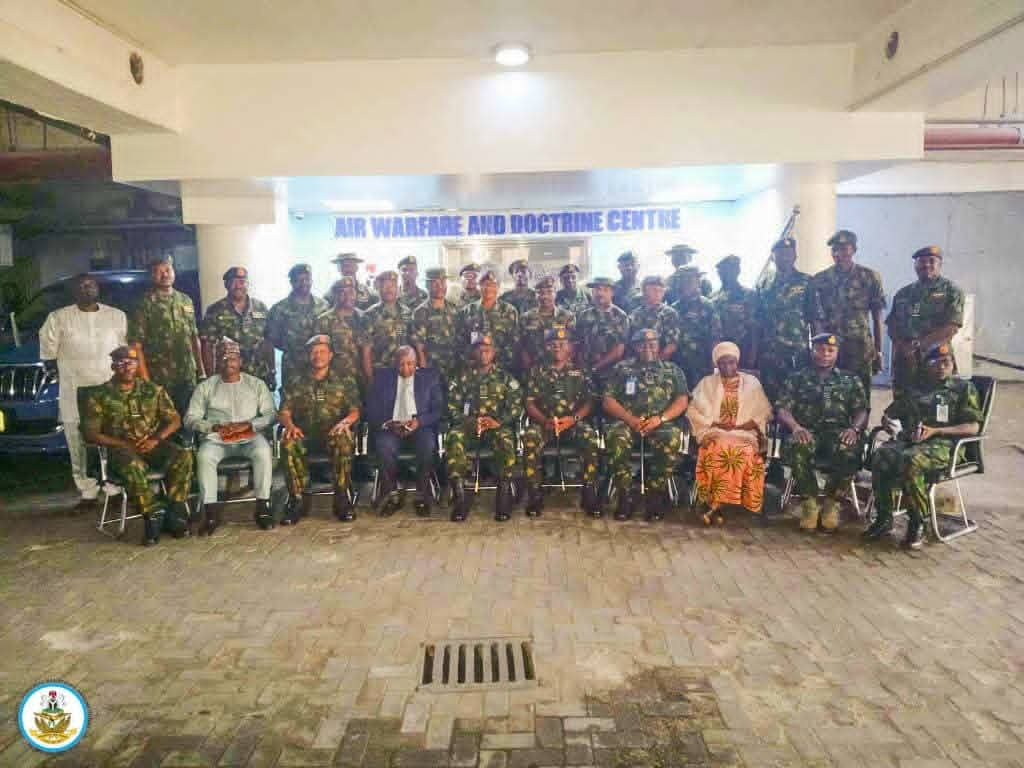By Bavoriat Clara
The Chief of the Air Staff (CAS), Air Marshal Hasan Bala Abubakar, has restated that strict adherence to international humanitarian law enhances, rather than undermines, operational effectiveness.
Speaking at the closing ceremony of the Nigerian Air Force (NAF) Civilian Harm Mitigation training held on Friday, August 29, 2025, in Abuja, the CAS represented by the Chief of Civil-Military Relations, Air Vice Marshal Ibikunle Daramola, stressed that safeguarding civilian lives during conflict strengthens trust and cooperation with host communities, improves intelligence gathering, and contributes to lasting stability.
In a statement issued by the NAF Director of Public Relations and Information, Air Commodore Ehimen Ejodame, the CAS described compliance with international humanitarian law as a “force multiplier” in military operations. “Protecting civilian lives fosters trust and cooperation from local communities, facilitates intelligence gathering, and contributes to long-term stability.
It also strengthens Nigeria’s standing as a professional and responsible actor in the global security space,” he noted.
To further entrench this principle, the CAS recalled that the NAF earlier this year launched its Civilian Harm Mitigation Action Plan, with a key component being the establishment of a dedicated Department of Civilian Harm Mitigation at the Air Warfare and Doctrine Centre.
According to him, the new department will serve as the hub for NAF-wide training, analysis, and doctrine on civilian protection, thereby institutionalizing best practices for harm mitigation and accountability during air operations.
Air Marshal Abubakar urged participants of the course to embody professionalism, discipline, and accountability in the discharge of their duties. “While technology, platforms, and tactics provide the means to fight, it is our values, respect for human dignity, and compliance with international law that truly define us as a force for good,” he said.
The training, which began on August 11, 2025, was conducted in three batches and benefited 69 officers. It covered topics such as the application of international humanitarian law in Nigerian air operations, precision ordnance selection to minimize collateral damage, Rules of Engagement, positive target identification, targeting categorization, the No-Strike List (NSL), and the Sensitive Target Approval and Review (STAR) process.
In his welcome address, the Commandant of the Air Warfare and Doctrine Centre, Air Vice Marshal Michael Ekwueme, expressed appreciation to the CAS for entrusting the Centre with the programme.
He urged participants to apply the knowledge gained in their respective theatres of operation. He also noted that the officers underwent a rigorous curriculum blending theoretical and practical modules, including advanced protocols for engaging sensitive targets under operational pressure.
The training reflects the NAF’s commitment to international treaties and conventions such as the Geneva Conventions of 1949, their Additional Protocols, the Hague Regulations, and the African Charter on Human and Peoples’ Rights. By strengthening its institutional capacity, the NAF seeks to minimize civilian harm and uphold Nigeria’s reputation as a responsible global security partner.
